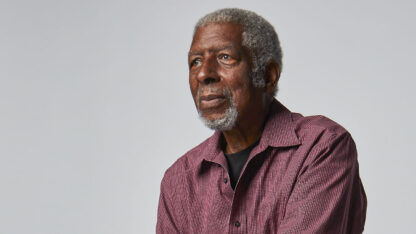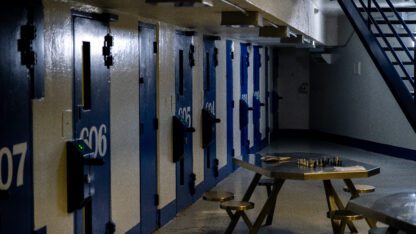The earliest records of busking — performing music or other entertainment in the street for monetary donations — can be traced all the way back to ancient Rome.
Today, buskers perform throughout our cities in trains, parks and thoroughfares. In this feature, “City Lights” producer Summer Evans decided to see how Atlanta’s busking scene compared to those of other musical cities.
In the city of Atlanta, buskers don’t need a permit. However, there are city codes around noise amplification and permissible monetary solicitation, which are available on the city’s Code of Ordinances website.
Other cities, such as Decatur, do require permits for busking. In 2018 the Decatur Arts Alliance created a busker’s program to simplify the process.
Decatur’s busking permits are free and valid for one month. Buskers must renew their permit on the first of each month to perform.
In the City of Decatur, acceptable entertainment includes, but isn’t limited to:
• Live singing or instrument playing
• Dance or movement
• Spoken word or comedy
• Street magic
• Portrait sketching
The Decatur Arts Alliance does not permit:
• Fortune-telling, including tarot and palm reading
• DJ-ing or any non-live musical performance
• Tattooing or body-piercing services
• Acts that include weapons or fire
• Any material that is lewd or offensive in nature
Buskers are asked to be good neighbors to the Decatur residents and local retail/restaurant businesses. Buskers are allowed to perform between 10 a.m. and 10 p.m. in designated zones and they can collect tips, but they cannot openly solicit for them.
Featured in this segment are two buskers who are a part of the Decatur Buskers Program, musician and educator Joseph Reed and vocalist Mr. Finesse.
Another busking program offered in Atlanta is part of MARTA Artbound, the transportation system’s public art program that consists of both visual and performing arts.
The performers are located at various MARTA stops throughout the week, and you can always find a busker at any of the MARTA farmers markets.
And unlike New York buskers, the Atlanta musicians do not perform inside the trains.
MARTA Artbound discourages the performers from putting out tip jars since they get paid by the program.
“The idea is that we want to make sure that everyone stays safe, and sometimes a big pile of money sitting out is not the greatest thing, so we ask our musicians not to accept tips,” said Katherine Dirga, the director of the Art in Transit Program. She continued, “That said, I’ve definitely seen some tipping going on; our customers are so generous, you almost can’t stop them. I’ve seen people tuck dollars into people’s guitar straps; I’ve seen all kinds of things.”
Busking can help one hone their public performing skills or a way to bring joy to passersby. Either way, it is another staple of Atlanta’s cultural richness.









